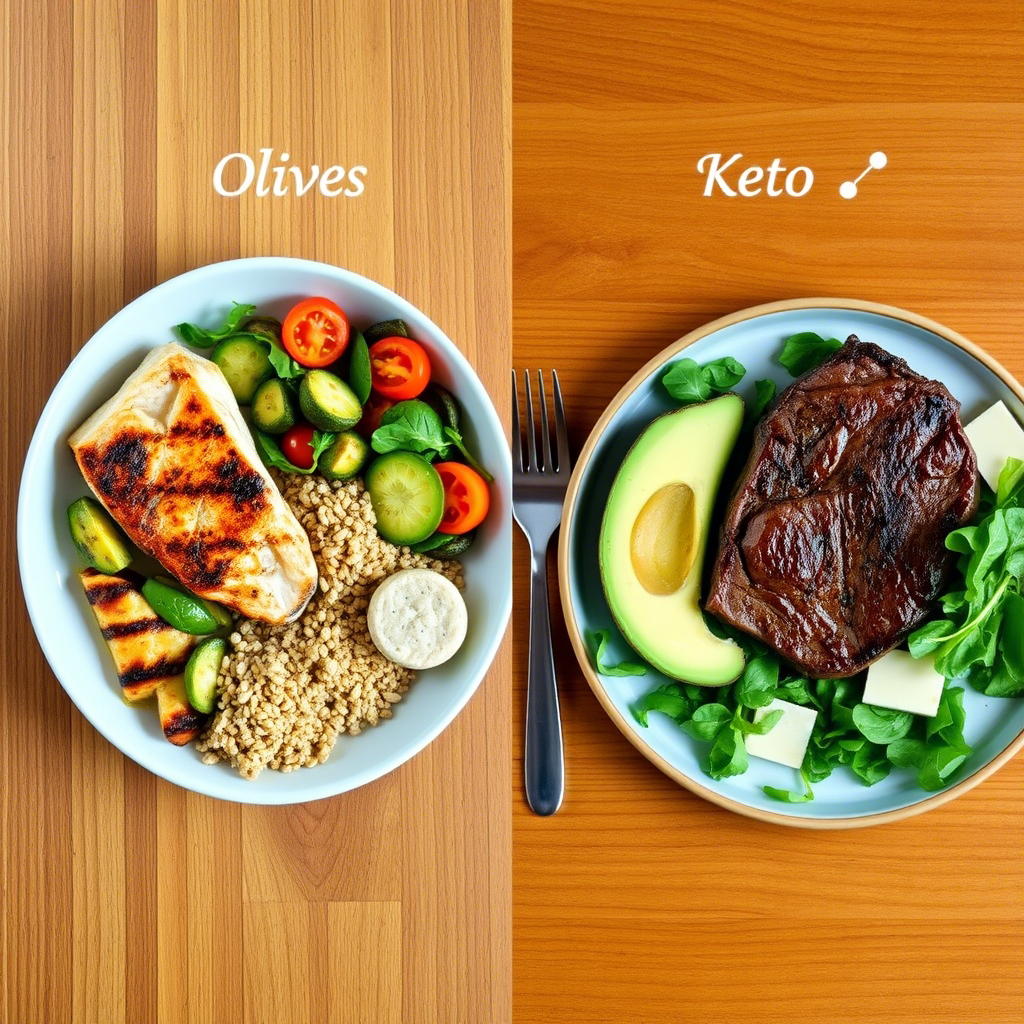🥗 Mediterranean Diet: 5 Reasons It’s the Best
The Mediterranean diet has consistently been ranked as the top diet for health and longevity, while the ketogenic (keto) diet has garnered attention for its rapid weight loss claims but also faces criticism for potential health risks. This comprehensive guide delves into five compelling reasons why the Mediterranean diet is considered superior and five reasons why the keto diet may not be the best choice for everyone.

🥗 Mediterranean Diet: 5 Reasons It’s the Best
1. Heart Health Benefits
The Mediterranean diet emphasizes the consumption of healthy fats, particularly monounsaturated fats from olive oil and omega-3 fatty acids from fish. These fats are known to reduce LDL (bad) cholesterol levels and increase HDL (good) cholesterol, thereby lowering the risk of heart disease. A study published by the Mayo Clinic highlights that this diet can reduce the incidence of cardiovascular events.
2. Rich in Nutrients
This diet encourages the intake of a variety of fruits, vegetables, whole grains, legumes, and nuts, providing essential vitamins, minerals, and antioxidants. These nutrients support overall health and can help prevent chronic diseases.
3. Supports Weight Management
Unlike restrictive diets, the Mediterranean diet is sustainable and promotes satiety through high-fiber foods, aiding in weight management. Research indicates that adherence to this diet is associated with a lower risk of obesity. (GQ, Live Science)
4. Promotes Brain Health
The inclusion of omega-3 fatty acids, antioxidants, and anti-inflammatory foods supports cognitive function and may reduce the risk of Alzheimer’s disease and other forms of dementia. (Healthline)
5. Reduces Inflammation
Chronic inflammation is linked to various diseases, including cancer and diabetes. The Mediterranean diet’s emphasis on anti-inflammatory foods like fruits, vegetables, and healthy fats helps combat inflammation. (University of Utah Healthcare, Healthline)
🥩 Keto Diet: 5 Reasons It May Be Problematic
1. Nutrient Deficiencies
The keto diet restricts carbohydrate intake, leading to limited consumption of fruits, vegetables, and whole grains. This can result in deficiencies in essential nutrients like vitamins A, C, K, and fiber. (Healthline)
2. Digestive Issues
Low fiber intake from the exclusion of many plant-based foods can cause constipation and other digestive problems.
3. Heart Health Concerns
High intake of saturated fats from animal products in the keto diet may increase LDL cholesterol levels, potentially raising the risk of heart disease. (Healthline)
4. Sustainability Challenges
The restrictive nature of the keto diet can make it difficult to maintain long-term, leading to potential weight regain and unhealthy eating patterns. (Healthline)
5. Potential Kidney Stress
High protein intake associated with the keto diet may put additional strain on the kidneys, especially in individuals with pre-existing kidney conditions.
🥗 Mediterranean vs. 🥩 Keto: A Comparative Overview
| Aspect | Mediterranean Diet | Keto Diet |
|---|---|---|
| Primary Focus | Balanced intake of all macronutrients | High fat, very low carbohydrate |
| Food Variety | Wide variety including fruits, vegetables | Limited, excludes many fruits and grains |
| Heart Health | Promotes heart health | Potentially increases LDL cholesterol |
| Sustainability | Easy to maintain long-term | Difficult to sustain |
| Weight Management |